What's new

Lower injury rates found when workers feel their workplace prioritizes their wellbeing
Workers who feel their workplaces are not committed to their mental wellbeing have more than twice the risk of work-related physical or mental health injuries compared to workers who feel the opposite. That’s according to an IWH study that asked workers about the psychosocial safety of their workplace—that is, whether an organization prioritizes mental health and wellbeing, and takes action to prevent psychosocial hazards. The study found that poor psychosocial safety and poor physical safety both increase the risk of work-related mental and physical injuries.

What work and health challenges might OHS professionals face by 2040?
What challenges may face occupational health and safety (OHS) practitioners and policy-makers in the next 15 years? An IWH team recruited OHS practitioners from across Canada and Europe to help answer this question. The resulting strategic foresight report offers seven future scenarios that may face OHS by 2040. It also lays out important questions about each scenario that OHS may need to confront in the years to come.

IWH Speaker Series: Using cannabis to manage symptoms of work-related injuries—Experiences of injured workers in Ontario
On February 24, Dr. Nancy Carnide shares findings from interviews with workers who have sustained a work-related injury. She discusses their decisions to use cannabis, their perceptions of its impacts, and their experiences using cannabis while returning to work.
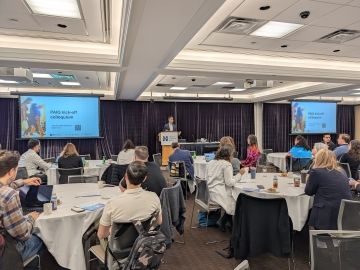
AI and job quality project gathers partners to develop roadmap
Job quality is increasingly recognized as an important factor for workers’ health, safety and wellbeing. As artificial intelligence (AI) becomes more integrated into workplaces, how can we ensure that job quality—and the health and safety of workers—remains a top priority? That’s the question the newly launched Partnership on AI and Quality of work (PAIQ) project wants to answer. The team recently came together to kick off the next seven years of work and to discuss the top-of-mind research questions for stakeholders.

IWH Speaker Series: Understanding PTSI program implementation processes in Alberta first responder organizations
On January 27, Dr. Dwayne Van Eerd shares findings from interviews conducted with first responders in Alberta. He discusses their experiences as post-traumatic stress injury (PTSI) disability prevention policies and programs were implemented, highlighting successes and challenges.

Do women and men have different risks of getting an infectious disease from work?
Within a given occupation, men and women often face different risks of experiencing a work-related injury. But are those trends the same when it comes to the risks of work-related infectious diseases? According to an IWH systematic review of studies published between 2016 and 2021, women and men in the same jobs have similar risks of getting an infectious disease from work—with a few exceptions.

Death rates are higher for workers in precarious and lower quality jobs
Death rates are higher for workers in lower-quality jobs. That’s according to an IWH study that explored whether job quality was linked to rates of death. It analyzed workers’ risk of dying over a 13-year period—comparing not just workers in standard and precarious jobs but those in other types of job quality in between.

Inclusive employment strategies, resources showcased at symposium
At a two-day event symposium hosted by Inclusive Design for Employment Access (IDEA), stakeholders had an opportunity to share and learn about new programs, research, and resources aimed at helping employers build their disability confidence.

IWH Speaker Series: AI adoption at work—which worker and occupation groups are most likely to be affected?
On November 18, Dr. Arif Jetha will discuss a study on how AI may affect workers in different ways. He will discuss differences between women and men, and those with various education levels. Jetha will also describe how AI’s impact differs based on job factors, including the skills required and the job’s quality.

Word spreads about IWH tools, thanks to stakeholders' support
Since the release of two tools designed to support the sustained employment of people with chronic and episodic conditions, word has spread quickly to new audiences who have learned about and adopted them. That's thanks to organizations that promoted the tools and helped them reach the hands of workers, employers and post-secondary students who are about to move forward in the labour market.

Differences in firm-level AI use for health and safety
To what extent are Canadian workplaces using artificial intelligence (AI) to help support workers’ health and safety? And what do these workplaces have in common? An IWH study surveyed firms across Ontario and British Columbia to find out.

Mental health of Canadians who work from home no better or worse than those working outside the home
Do Canadians who work from home have better mental health—potentially due to greater work-life balance and less commuting? Or does their mental health decline due to more social isolation and blurred boundaries between their work and personal lives? To find out, this study examined survey data of almost 25,000 Canadians in 2022, after work-from-home arrangements became more common.

Parental job quality linked to children’s mental health, school performance
Children whose parents work low-quality, precarious jobs are more likely to experience mental health problems and perform poorly at school. That’s according to a pair of studies, co-led by the Institute for Work & Health (IWH), that drew on two large-scale surveys of children and parents from Ontario and across Canada.

Syme research training award recipients announced
IWH is pleased to announce the 2025/2026 S. Leonard Syme Research Training Award recipients. They are: Erene Stergiopoulos, Travis Van Belle, Rebecca Cairns and Emily Howe. Established in 2002, the awards are designed to support early-career researchers at the master's or doctoral level studying work and health issues.

IWH Speaker Series: The long-term work experiences of Canadians with mental health conditions
People living with a mental health condition face a lower likelihood of employment than those without such conditions. But we know little about the range of individual employment experiences, and whether they change over time. On September 23, the IWH Speaker Series returns as Dr. Kathleen Dobson draws on 25 years of linked survey and tax data to examine the long-term employment trajectories of Canadians living with mental health conditions.

IWH knowledge transfer and exchange approach a ‘perfect fit’ for episodic disabilities project
Researchers and knowledge transfer and exchange (KTE) staff at the Institute for Work & Health (IWH) put a lot of focus on how to tap into partner expertise to refine research goals and facilitate the sharing and uptake of research findings. What does that look like in practice? This article illustrates how a seven-year partnership project used IWH’s approach to KTE to develop and share usable outputs from the research findings.

Dates announced for IWH systematic review workshop
IWH's systematic review workshop will be held from October 30 to 31, 2025, in-person in Toronto. Attendees will learn how to plan, conduct and communicate the results of a systematic review. If you are a clinician, clinical trainee, academic or researcher with an interest in the methodology of systematic reviews, register at the link below by October 15 to attend.

Preventing PTSI work disability at first responder organizations: perspectives from the workplace
Across Canada, police, fire and paramedic services are aware of the toll of post-traumatic stress injuries (PTSI) on their workforce. In a multi-part study, an IWH team drew on interviews with leaders and members in first response services to learn what they’re currently doing to prevent PTSI work disability—and what barriers and facilitators they’ve experienced—to distill several recommendations.

Being part of an IWH research partnership helped health charities meet their communities’ needs
The seven-year partnership project, titled Accommodating and Communicating about Episodic Disabilities (ACED), showcases the role partner organizations can play in developing user-friendly research products and in disseminating these products more widely than would have been possible without their help. As told in this impact case study, the partnership enhanced both the quality of the research and the partners’ ability to serve their clients.

Arts-based study reveals complexities of working as a nail technician
Workplace hazards have been the focus of many studies on the health and safety of nail salons and their workers. But an arts-based study strived to demonstrate the complexity of nail technicians’ relationships to their work, finding both harms and joys.
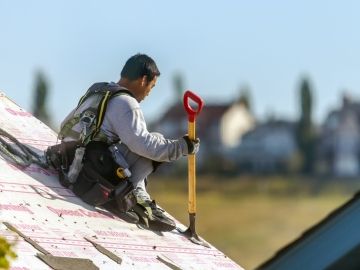
IWH award recipient to study work and health issues faced by Canada’s temporary residents on work, student visas
Very little research has been done to date on the 2.5 million people living in Canada on a non-permanent residency status, such as on a work or student visa. Now, with an award from the Institute for Work & Health (IWH), Dr. Sonja Senthanar is leading research to understand how constraints on citizenship may affect the work and health experiences of non-permanent residents.
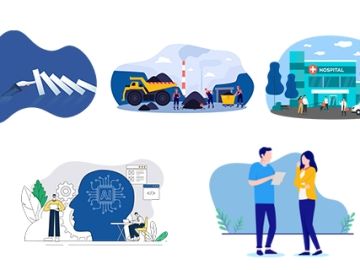
5 Things We Think You Should Know
For a quick rundown of Institute for Work & Health research findings from the last year, look no further than our latest edition of 5 Things We Think You Should Know.

Which workers and jobs will be most affected by machine learning?
Machine learning is being adopted by more and more Canadian workplaces. Given this technology’s ability to learn, adapt and generate work outputs, it also has the potential to perform job tasks in place of humans. But which workers might be most affected by the use of machine learning? An IWH study explores this question.

New partnership research project examines AI’s impact on the quality of work
IWH has been awarded funding from SSHRC to lead a seven-year partnership research project to study artificial intelligence, job quality and worker wellbeing. The research team, led by IWH Associate Scientific Director and Scientist Dr. Arif Jetha, comprises nearly 40 researchers spanning occupational and public health sciences, engineering, business, policy, ethics and other disciplines.

Telementoring program addresses return-to-work challenges for Ontario health-care providers
An IWH study has found that Ontario health-care providers face a range of challenges when treating workers with a work-related injury or illness and helping them return to work—from communication issues with compensation boards to the complexities of working with multiple parties. The researchers also found that a telementoring program called ECHO Occupational Environmental Medicine helped providers overcome some of these challenges.

IWH’s Mustard Postdoctoral Award recipient announced
IWH is pleased to announce Dr. Cherise Regier as the new recipient of the Mustard Postdoctoral Award. This award aims to support the development of outstanding new and interdisciplinary researchers in the field of work and health. Throughout this two-year award, Regier hopes to continue her research on the intersections between job quality, mental health and labour market transformation.
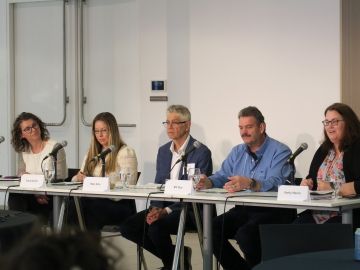
New report shares insights on addressing opioid-related harms among workers
Last spring, IWH co-hosted a workshop with the Occupational Cancer Research Centre on opioid harms among workers. The event aimed to share evidence and diverse perspectives on opioid-related harms among workers, discussing contributors to these harms and identifying actions to address them in the workplace. A report is now available that summarizes the workshop and the insights shared by panelists and attendees.
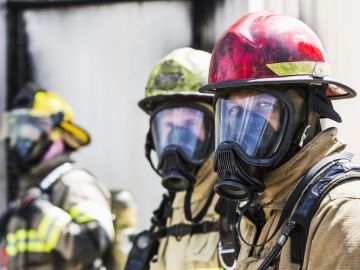
IWH Speaker Series: Preventing PTSI work disability at first response organizations
Due to the nature of their work, first responders (paramedics, police and firefighters) are routinely exposed to traumatizing experiences. How are first response organizations helping to prevent post-traumatic stress injuries (PTSI) among their workers? On May 27, Dr. Emile Tompa shares findings from a study that set out to learn about organizational-level programs, services and practices to address PTSI for first responders.
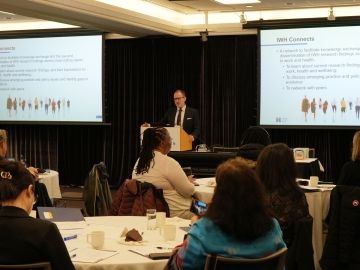
IWH network event gathers safety leaders to share ideas, resources
This spring, attendees of IWH's second annual IWH Connects meeting had a chance to exchange ideas about research and resources for organizations in three key areas: building employer confidence in disability, equity, inclusion and accessibility practices; promoting health and safety in linguistically diverse workplaces; and addressing the psychosocial work environment.

IWH rates high in trust, relevance, value in new stakeholder survey
One way the Institute for Work & Health (IWH) makes sure it meets its mission is to conduct stakeholder surveys, roughly every two years. In these surveys, stakeholders are asked whether they agree that the Institute’s research is trustworthy, unbiased, relevant and useful. With these questions, IWH seeks to measure how stakeholders view the calibre of its research and its value to them.

Precarious jobs linked to suicide, drug poisoning, and alcohol-related deaths: IWH study
In Canada and other high-income countries, rates of suicide, drug poisoning, and alcohol-attributable mortality—sometimes referred to as “deaths of despair”—have increased over time. An IWH study investigated whether job quality—measured in terms of employment stability, hours and wages—is linked to these causes of deaths.

IWH Speaker Series: Good jobs, bad jobs, and ‘deaths of despair’
Not all jobs are created equal, and research has shown that low-quality jobs can have a range of health impacts for a worker. On April 22, Dr. Faraz Vahid Shahidi discusses a study that examines whether job quality—having a “good” or “bad” job—is linked to what some call “deaths of despair”: deaths caused by suicide, drug poisoning and alcohol.
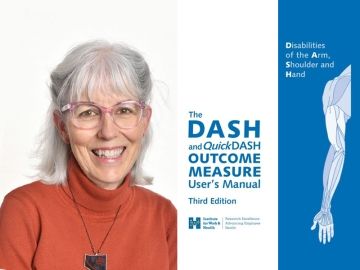
IWH scientist honoured with lifetime achievement award
Institute for Work & Health Senior Scientist Dr. Dorcas Beaton has been named the recipient of the International Federation of Societies for Hand Therapy (IFSHT) Lifetime Achievement Award. The IFSHT cited in particular Beaton's body of work on the DASH Outcome Measure and the QuickDASH, both developed at IWH.
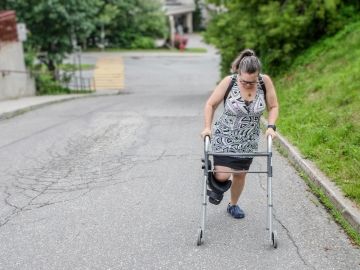
Injured workers face mental health challenges beyond diagnosable conditions
Workers with a work-related physical injury that takes them off the job can have a wide range of mental health experiences, beyond diagnosable conditions. That’s according to an IWH study which also found that differences in workers’ mental health after an injury were linked to return-to-work outcomes. Those reporting both a mental health condition and the poorest wellbeing had longer, more expensive compensation claims.

In-person or online: Does it make a difference for OHS training?
Online formats for occupational health and safety (OHS) training have gained popularity in recent years, especially since the COVID-19 pandemic. But are they as effective as in-person training? An IWH study compared online and in-person OHS training programs to measure differences in knowledge retention and whether learners felt they would use the knowledge they gained.

How employers are improving RTW outcomes for public safety workers with PSTI
Work-related post-traumatic stress injuries are complex and highly prevalent among public safety workers such as those in police and fire services. Faced with the challenges of supporting employees who have experienced such an injury, public safety employers have developed strategies to improve return to work after such an injury.

Examining four types of job disruptions due to a health condition, and the differences expected when workplace support needs are met
Job disruptions are common among workers living with chronic physical and/or mental health conditions, an IWH study has found. The study investigated the effects of workplace supports on four types of job disruptions.

IWH Speaker Series: Surveying the landscape for AI use in occupational health and safety
As artificial intelligence (AI) is used more and more in workplaces across Canada, it also has the potential to transform occupational health and safety practices. On March 25, Dr. Arif Jetha outlines how AI could create safer workplaces and support worker health, sparking a discussion on both the risks and opportunities of AI in health and safety.

Severe pain, not pressure to return to work or lack of accommodation offer, linked to opioid use post-injury
An IWH study found that among a group of injured workers in Ontario, those who experienced severe pain were more likely to use opioids than those who had no or only mild pain—regardless of whether they felt they had to return to work too soon, or were offered work accommodations.
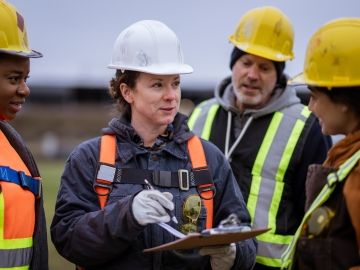
Saskatchewan’s construction safety group uses IWH tool to improve safety culture
Since 2021, the Saskatchewan Construction Safety Association (SCSA) has been surveying its members twice per year on their organizations’ safety practices and culture using IWH’s Organizational Performance Metric (OPM). A new case study details how SCSA members have been analyzing OPM scores to adjust their safety practices and how SCSA has been using the data to tailor their outreach.

Employers face challenges in supporting public safety personnel with post-traumatic stress injuries
Workers in public safety jobs, like firefighters or police, are often exposed to potentially traumatic events and may experience mental health injuries as a result. In Ontario, a pilot program has been developed to help treat these workers. To identify any needed changes to the program, IWH researchers asked employers about their experiences helping these workers return to work after a mental health injury.

IWH Speaker Series: The mental health of injured workers with a physically disabling injury
On January 28, Dr. Kathleen Dobson shares results from a recent study examining mental health profiles among a group of physically injured workers in Ontario. She also discusses how a holistic model of mental health helps highlight the diverse experiences of injured workers.